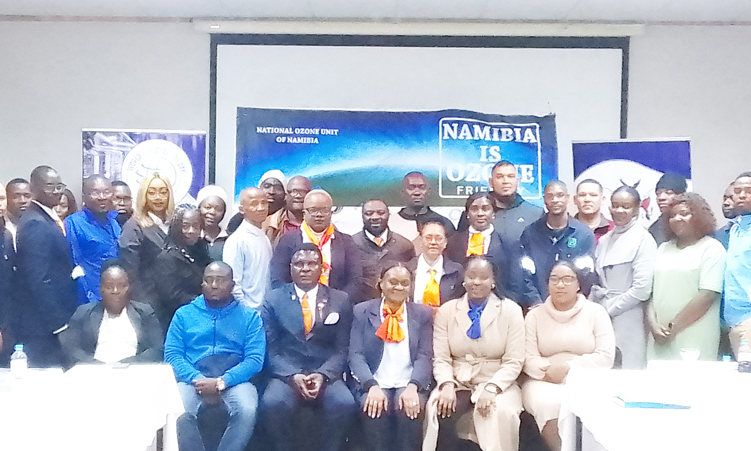Amalia Nangolo, an ozone officer at the Ministry of Industrialisation and Trade’s national ozone unit, said that governments, end users, and the public often take the significance of cooling and refrigeration for granted.
“Apart from its main purpose of keeping food fresh and safe to eat, your refrigerator can also be an agent of change to help solve environmental challenges, such as preserving the earth’s ozone layer, fighting climate change, and promoting energy efficiency.
“You may not recognise it, but the refrigerator-freezer in your house or your favorite restaurant is a superstar which has a huge impact far beyond the kitchen.
“Reduce food waste and related greenhouse gas emissions in the processing, transportation, storage, and retail display of cold food by expanding and improving access to energy-efficient low-global warming potential technology,” she said.
Nangolo was speaking at an event where role-players in refrigeration observed World Refrigeration Day at Walvis Bay on 26 June.
The day is aimed at raising awareness of the importance of refrigeration technologies in everyday life.
Stakeholders were educated on ozone-depleting substances to ensure continuous progress in moving towards energy-efficient and environmentally friendly technologies.
Namibia is a party to the Montreal Protocol of 1987 on substances depleting the ozone layer.
Nangolo shared that the ministry’s national ozone unit is at the forefront of the phasing out of hydrochlorofluorocarbon (HCFC) and will continue to promote environmentally friendly and energy-efficient products.
“In an effort to meet international obligations, the country has ratified the Kigali Amendment to the Montreal Protocol on substances that deplete the ozone layer.
“This amendment aims to tackle climate issues caused by HCFCs.
“It is not a threat to the ozone layer, but has high global warming potential. Henceforth, parties to the Montreal Protocol have proactively risen to address this challenge by adopting the Kigali Amendment,” she said.
Nangolo urged participants to work together towards making Namibia an example to be emulated by other countries.
Caign Manyukwa, the president of the Southern African Development Community Refrigeration and Air-Conditioner Association (SADC RAC), said the cold-chain business has been neglected in the past, but is now spreading a regional message of “united cooling for food security and comfort”.
“Cooling has the power to change lives and preserve lives, as seen during the Covid-19 pandemic. A point to note was the storage of all vaccines.
“The SADC as a region has taken heed of the global call to implement universal Sustainable Development Goals that investigate high-energy efficiency, as well as the need to migrate from the usage of high ozone depletion potential refrigerants to natural refrigerants and some blends with low ozone depletion and global warming potential.
“Our region will be leading the way in no time as we work with our various governments and implementing partners to improve livelihoods through cooling.
“The SADC RAC Association will fully support the ‘from farm to fork’ initiative and encourage our agricultural sectors so farmers can enjoy the fruits of their labour through the full implementation of cold-chain policies that give perishables a longer shelf life,” he said.
Stay informed with The Namibian – your source for credible journalism. Get in-depth reporting and opinions for
only N$85 a month. Invest in journalism, invest in democracy –
Subscribe Now!










